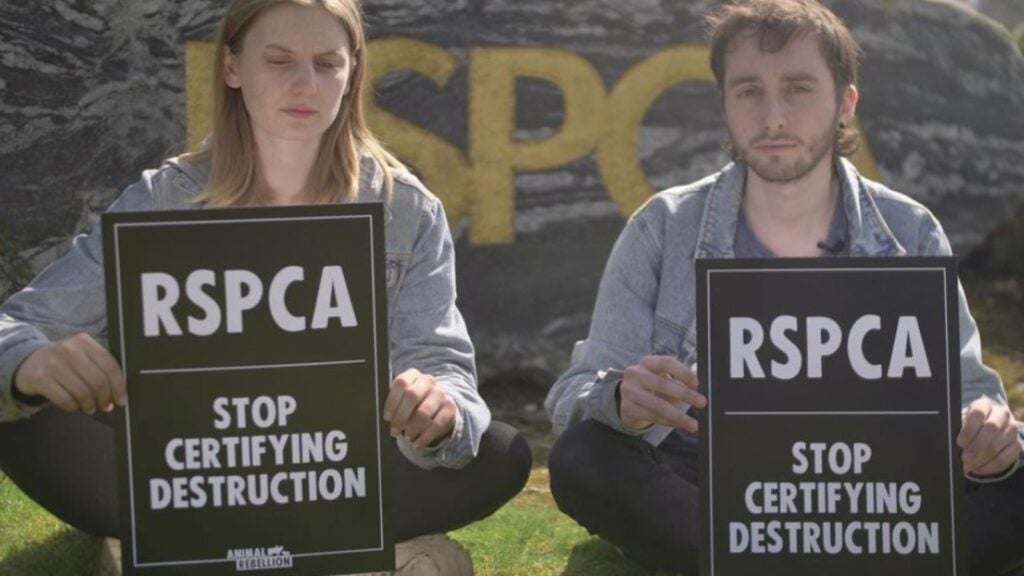Animal Rebellion is pushing for the RSPCA to officially come out in support of a plant-based food system. The animal and climate justice movement says this is essential to protect the planet and save the lives of animals.
Animal Rebellion, including two ex-RSPCA trustees, met with the RSPCA earlier this month. The meeting was an opportunity to press the charity to take a formal stance against animal farming, and to support a transition to a plant-based system.
Martin Whybrow is a former RSPCA branch trustee and now a member of the Animal Rebellion group. He said in a press statement, “It is impossible to meet the targets needed to limit global heating without the shift to a plant-based food system.”
Whybrow continued, “Already, millions of humans and animals are suffering from the effects of extreme climate. It makes total sense for a charity dedicated to animal welfare to join the dots.”
RSPCA’s animal welfare standards
The RSPCA campaigns for the “highest possible standards” of animal welfare during the rearing, transportation, and slaughter of animals.
But the organization permits controversial practices, including the use of gas and maceration for the killing of day-old chicks.
“Done correctly, both methods can offer an effective and humane kill and our welfare standards set strict parameters stating how both of these methods must be carried out to ensure this is the case,” the RSPCA shared in a Tweet.
Advocating for a kinder food system
Animal Rebellion is asking the RSPCA to fulfil its mission statement and support a future where all animals are respected and treated with kindness and compassion.
“We ask the RSPCA how they can justify caring for dogs and cats while supporting the slaughter of the millions of farmed animals who are killed for food every year in the UK alone,” Animal Rebellion explained.
“Additionally, we ask the RSPCA how they can claim to care for and respect wild animals when they condone an industry that is one of the leading causes of the climate crisis.”
The animal protection movement intends to continue taking action until “the world sees a food system that centers on climate, animal, and human justice, rather than unsustainable growth.”






